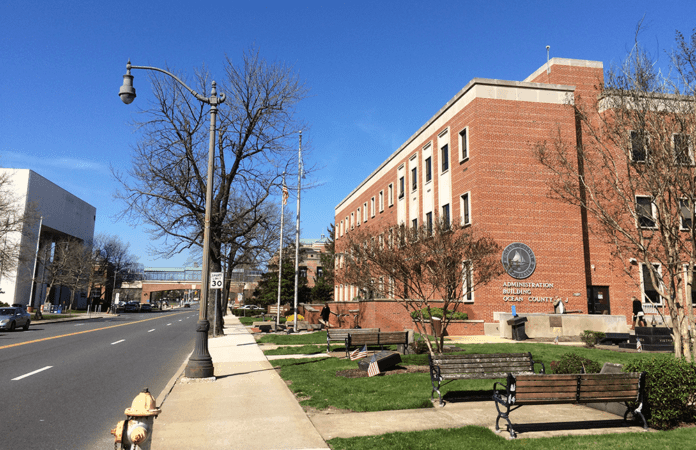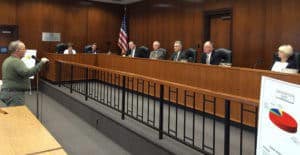
OCEAN COUNTY – The budget for the county, which includes a tenth of a cent reduction in the tax rate, was adopted at a recent meeting of the Board of Chosen Freeholders.
The total budget will be $407,919,144. It includes an increase of about $7.9 million. The amount to be raised in taxation will be $342,092,735, an increase of $8.3 million from last year’s $333,794,824.
As more homes get added to the tax rolls, both from new construction and replacements from Superstorm Sandy, the ratable base increased, Freeholder John Bartlett said. In 2016, there were $94.5 billion in ratables. In 2017, there will be $97.1 billion on the tax rolls.
This will result in the county-wide tax rate decreasing by 1/10 of a cent, from 35.3 cents per $100 of assessed valuation to 35.2 cents.
“We’re not trying to beat our chests, but it’s a step in the right direction,” he said.
Between using surplus and bonding for capital improvements, the county will likely keep its AAA bond rating, and continue with no surprises in future years, he said.
“You do not write a budget for a year. You have to do budget work with the future in mind,” he said.

The budget was discussed by the public at the meeting. Gary Black, Jackson, mentioned how the freeholder said there would be no surprises, but a reduction in taxes is a surprise. He thanked them for their fiscal responsibility.
Berkeley resident Robert Martino, who is on the county’s Senior Advisory Council, asked if any services would be cut for seniors in order to bring the budget down.
Freeholder Director Joseph Vicari listed programs that remain in the budget, such as the home delivery of meals. “The way you spend money in a budget shows where your heart is,” he said. “We will not cut services for senior citizens.”
Brick resident Sam Foster asked if budget cuts from the state and federal environmental agencies would affect the county. A discussion of medical waste washing up onshore ensued.
Freeholder Gerry Little said that the Ocean County Board of Health tests drinking water and beach water a great deal to determine the utmost in safety. The problem, in discussing medical and other waste hitting county shores, is that other towns up north do not have as strong regulations. Waste from sinks, toilets, and washing machines mix into the same pipes as the rain. When there is a significant rainfall, everything overflows. That matter winds up in the waves and sometimes comes down to the shore.






